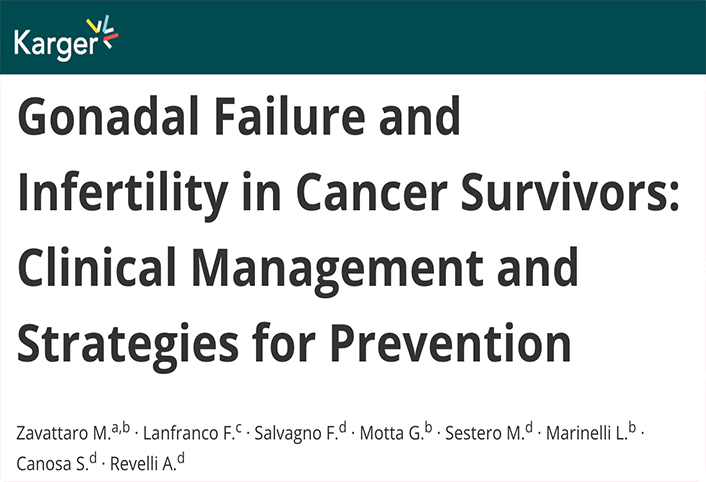
Gonadal Failure and Infertility in Cancer Survivors: Clinical Management and Strategies for Prevention
Marco Zavattaro, Fabio Lanfranco, Francesca Salvagno, Giovanna Motta, Marta Sestero, Lorenzo Marinelli, Stefano Canosa, Alberto Revelli
Front Horm Res. 2021;54:58-68. doi: 10.1159/000515460. Epub 2021 May 6.
Abstract
Modern advances in oncological treatments determined a significant improvement in survival rates for several malignancies. Nevertheless, survivorship and quality of life of cancer survivors may be negatively impaired by metabolic and endocrine side effects related to anticancer treatments, including alterations of pituitary-gonadal axis function. In fact, both medical (chemo- and radiotherapy) and surgical approaches may negatively impact on gonadal function, leading to transient or permanent hypogonadism and infertility. In view of these considerations, fertility preservation (FP) should be a primary concern in all oncological patients who may potentially achieve parenthood, irrespectively from their sex and pubertal status at treatment, and adequate counselling should be provided before undergoing gonadotoxic therapy or gonadectomy. Cryopreservation of gametes, when feasible, represents the mainstay for FP in postpubertal age, while procedures involving storage of tissue specimens or stem cells should still be considered as experimental. Given the complexity of both hormonal and psychological implications in this clinical setting, a multidisciplinary approach is advisable for optimal FP and for early diagnosis and treatment of hypogonadism.
